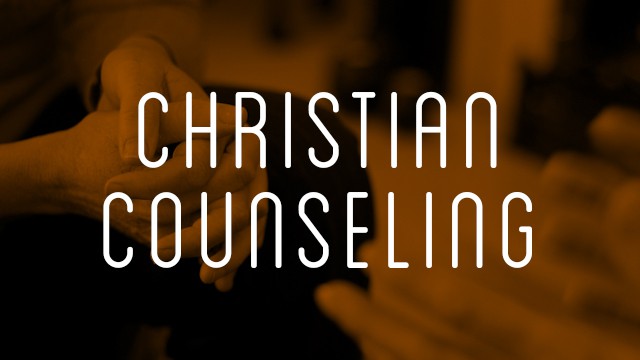Christian counseling is a unique approach to therapy that combines psychological principles with biblical teachings to help individuals navigate the challenges of life and achieve emotional and spiritual well-being. Rooted in the belief that the Bible is the ultimate guide on how Christians should think and behave, Christian counseling aims to help individuals align their lives with God’s teachings and find healing and growth through their faith.
The Origins of Christian Counseling
The roots of Christian counseling can be traced back to biblical accounts, but it gained prominence in the late 1960s and 1970s with the emergence of the Biblical Counseling Movement. Jay E. Adams, the founder of this movement, introduced a faith-based approach to addressing mental health issues, trauma, addiction, and relationship problems in his book, “Competent to Counsel.” This approach challenged the prevailing therapy methods of the time and emphasized the importance of integrating biblical principles into the counseling process.

In 1968, the Christian Counseling & Educational Foundation (CCEF) was established to provide guidelines and training for Christian counselors. Today, Christian counseling is practiced by psychologists, counselors, pastors, religious leaders, and clinical social workers who have the necessary qualifications and a deep understanding of both psychological principles and biblical teachings.
The Goals of Christian Counseling
Christian counselors address a wide range of issues, offering support and guidance to individuals who seek to align their lives with their faith and overcome various challenges. Some common goals of Christian counseling include:
- Conquering Marital Problems: Christian counseling places a strong emphasis on the sacrament of marriage and encourages couples to work through their problems rather than giving up on their relationships. Counselors help couples repair and strengthen their marriages by addressing issues such as infidelity, communication problems, loss of intimacy, addiction, and conflicts.
- Coping with Parenting Challenges: Christian counselors provide guidance and support to parents, helping them navigate the joys and difficulties of raising children. They offer practical tools and techniques to manage parenting pressures, address issues like mental illness, learning disabilities, bullying, and provide a safe space to discuss the challenges and responsibilities that come with being a parent.
- Support for Mental Health Conditions: Christian counseling provides a supportive environment for individuals struggling with mental health conditions such as depression, anxiety, post-traumatic stress disorder, and obsessive-compulsive disorder. Counselors help clients develop coping skills, improve self-esteem, and find solace in their faith, reminding them of their worth as children of God.
- Recovering from Grief & Loss: Christian counseling offers comfort and healing to those who have experienced the death of a loved one. Counselors help individuals navigate the grieving process, accept their loss, honor the memory of the departed, and find solace in their faith during this challenging time.Healing from Substance Abuse & Addiction: Christian counseling supports individuals on their journey to recovery from addiction. Counselors address underlying issues such as childhood trauma, abuse, and low self-esteem while guiding individuals to rely on their faith for strength and resilience. Clients are encouraged to turn towards their faith instead of destructive behaviors or substances when faced with overwhelming challenges.
- Strengthening Faith & Relationship with God: In a fast-paced and materialistic world, many individuals struggle to maintain a strong connection with their faith and prioritize their spiritual well-being. Christian counselors help individuals strengthen their relationship with God, reconnect with their faith, and provide practical tools to stay grounded in their beliefs during challenging times.
Who Can Practice Christian Counseling?
Christian counseling can be practiced by psychologists, counselors, pastors, religious leaders, clinical social workers, and other mental health professionals who hold a master’s degree or Ph.D. in counseling, psychology, or a related mental health discipline. These professionals must also be licensed to practice or provide counseling to clients.

However, individuals with a bachelor’s degree can still practice Christian counseling after completing a Christian counseling certificate program. These programs teach future Christian counselors how to integrate biblical principles into counseling sessions, emphasize the importance of family therapy, and provide guidance on promoting maximum benefit from rehabilitative counseling.
Issues Addressed in Christian Counseling
Christian counselors address a broad range of personal, relationship, parenting, social, and mental health issues. They utilize their knowledge of psychological principles and biblical teachings to help individuals manage and resolve these challenges. Some of the issues commonly addressed in Christian counseling include:
- Marital conflicts and relationship issue
- Parenting challenges and guidance
- Mental health conditions such as depression and anxiety
- Grief and loss
- Substance abuse and addiction
- Strengthening faith and spiritual growth
- Self-esteem and self-confidence issues
- Goal-setting and decision-making skill
- Coping with stress and life transitions
- Forgiveness and reconciliation
- Overcoming sinful behaviors and embracing God’s teachings
Benefits of Christian Counseling
Christian counseling can benefit individuals who have a strong faith or spirituality, but it is not limited to those who identify as religious. The integration of biblical teachings and psychological principles offers a unique approach to therapy that can be helpful for anyone seeking emotional and spiritual well-being. Some of the benefits of Christian counseling include:
- Integration of Faith and Therapy: Christian counseling provides a framework for integrating faith and therapy, allowing individuals to explore their spiritual beliefs and values while addressing psychological challenges.
- Supportive and Understanding Environment: Christian counselors are sensitive to the spiritual needs of their clients and provide a supportive and empathetic space to discuss personal struggles and challenges.
- Guidance from Scripture: Christian counseling incorporates the teachings of the Bible, offering individuals guidance and wisdom from scripture to navigate life’s difficulties and find hope and healing.
- Holistic Approach: Christian counseling recognizes the interconnectedness of physical, emotional, and spiritual well-being, addressing the whole person and promoting holistic healing.
- Strengthens Faith: Christian counseling helps individuals deepen their faith, connect with God on a deeper level, and find comfort and solace in their relationship with Him.
- Coping Skills and Resilience: Christian counselors equip individuals with practical coping skills rooted in biblical principles, helping them build resilience and navigate life’s challenges with grace and strength.
What to Expect from Christian Counseling
Christian counseling sessions often incorporate a variety of counseling methods, including cognitive-behavioral therapy (CBT), prayer, scripture, affirmation, and self-evaluation. While secular counseling approaches focus solely on psychological principles, Christian counseling combines these principles with the teachings of the Bible to provide a comprehensive approach to therapy.
During the initial sessions, Christian counselors seek to understand the client’s background, challenges, and goals through structured interviews and conversations. Together, the counselor and client develop a treatment plan that incorporates biblical principles and practical steps to address the client’s specific needs.
Christian counseling may involve homework assignments that include reading biblical passages, reflecting on personal beliefs and behaviors, and incorporating prayer and scripture into daily life. Counselors may also provide referrals to other specialists, such as psychiatrists or physicians, if additional support is necessary.
Finding a Christian Counselor
When seeking a Christian counselor, it is essential to find someone whose spiritual beliefs, approach, and values align with your own. A good counselor-client relationship is crucial for the therapy process, so take the time to research and find a counselor who respects and supports your faith.
There are several ways to find a Christian counselor. You can ask for referrals from your physician, friends, or religious leaders who have had experience with Christian counseling. Additionally, online directories and platforms can connect you with certified Christian counselors who offer both in-person and remote counseling options.
Remember that finding the right counselor may take time, so be patient and choose someone who can provide the support and guidance you need on your spiritual and emotional journey.
The Impact of the Pandemic on Christian College Students
Christian college students faced unique challenges during the COVID-19 pandemic, as their strong religious beliefs clashed with the uncertainty and fear brought about by the virus. Many students struggled to understand why God would allow such suffering and death, leading to increased levels of stress, anxiety, and depression.
The pandemic disrupted the traditional college experience for Christian students, forcing them to adapt to online learning and isolation from their peers. This added to their existing stress and anxiety, making it difficult to focus on coursework and maintain a sense of normalcy.
College counselors at Christian institutions faced a significant surge in counseling requests as students grappled with the emotional toll of the pandemic. The increased demand for services prompted counseling centers to expand their resources and provide remote counseling options to support students’ mental health needs.
Christian college counselors recognized the need for a more nuanced approach to addressing mental health issues among students. They acknowledged the importance of providing mental health support while respecting and integrating students’ faith into the counseling process. This shift in focus allowed counselors to better meet the emotional and spiritual needs of Christian college students during the pandemic.
Conclusion
Christian counseling is a powerful and effective approach that combines psychological principles with biblical teachings to support individuals in their emotional and spiritual journeys. It addresses a wide range of personal, relational, and mental health issues, helping individuals align their lives with their faith and find healing and growth.
Through the integration of faith and therapy, Christian counseling provides a supportive and understanding environment for individuals to explore their beliefs, receive guidance from scripture, and develop practical coping skills. The pandemic has highlighted the importance of mental health support within Christian communities, prompting counselors to adapt their approach to meet the unique needs of Christian college students.
If you are seeking counseling that aligns with your faith and values, consider Christian counseling as a valuable resource for finding healing, strength, and a deeper connection with God.




No comments! Be the first commenter?